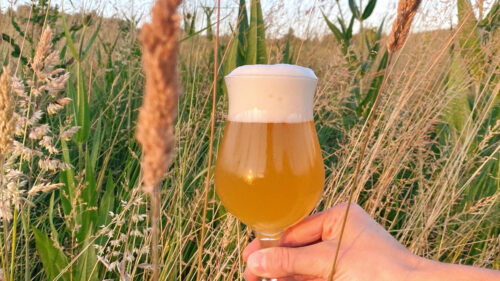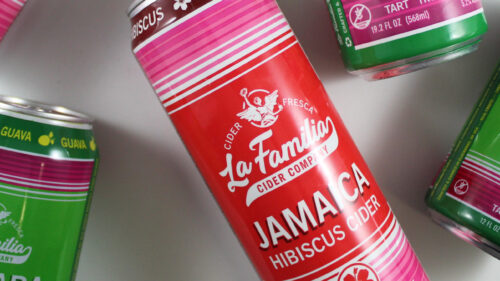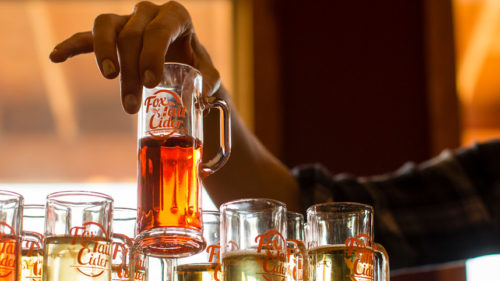For Jeremy Hall and Erin Chaparro, owners of the Blossom Barn Cidery in Grants Pass, every pear they turn into a delicious drink does so much more than just quench someone’s thirst. The fruit, the trees and the robust business they’ve built all signal the happy union of Oregon’s agricultural past and vibrant future transforming a historic drink.
Most ciders come from apples because they’re easy to juice and readily available in large quantities. Blossom Barn, however, could very well be Oregon’s only cidery dedicated solely to the perry, a hard cider made almost entirely from pears. It’s a lighter drink, naturally sweet with no added sugars, that can ferment for a long time to develop complex flavor without becoming dry. It’s very different from a pear cider, which is a pear-flavored apple cider. Only a few cideries make perries.
“There’s not much of a tradition here in the United States,” Hall says. “But in Europe, they’ve been making them for a thousand years.”
By November 2022, Blossom Barn will open its first proper tasting room inside a 110-year-old hay barn that sits on a 15-acre farm in the Applegate Valley, and it will hold tastings on weekends. It’s now part of the Applegate Valley Wine Trail.
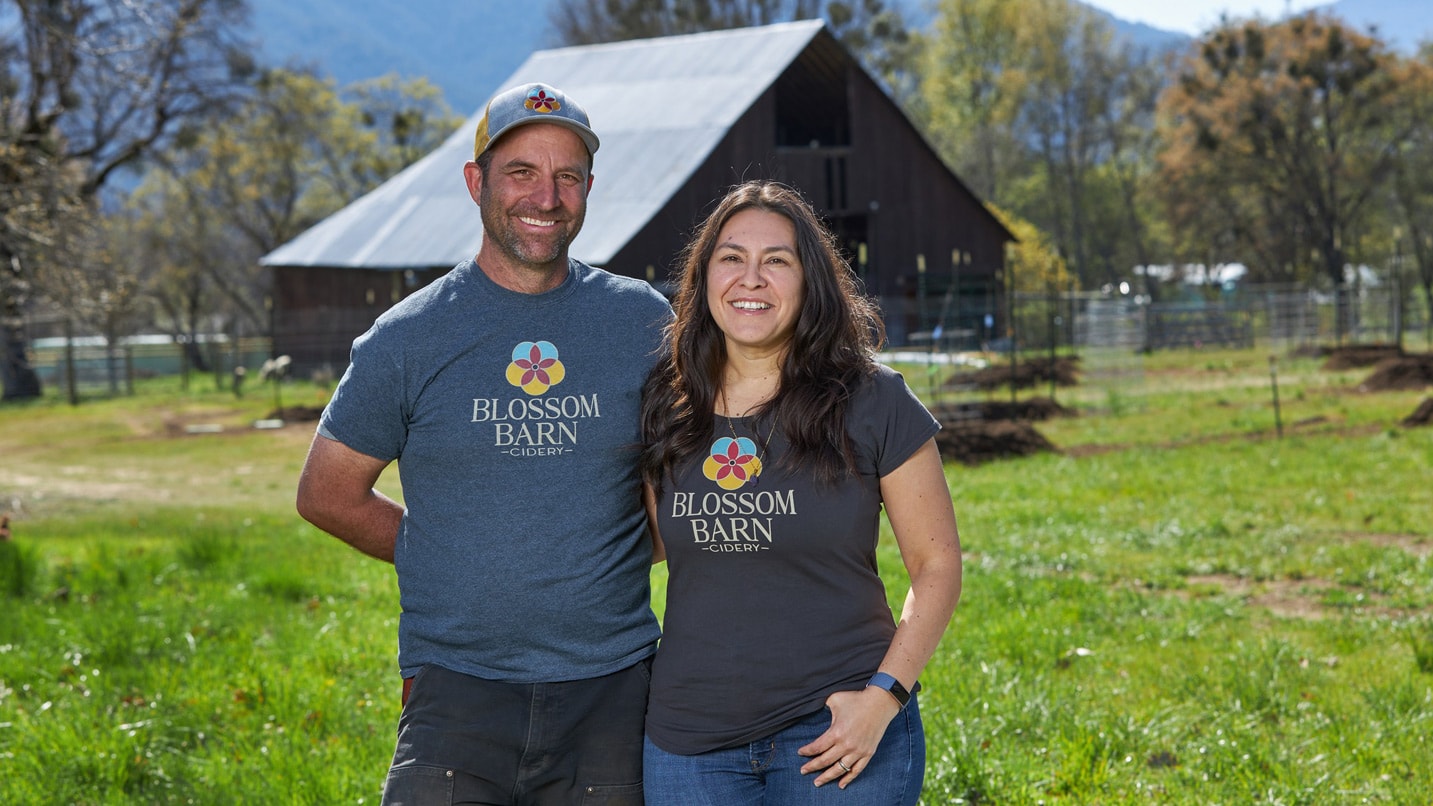
A Link to the Past and Hope for the Future
Hall and Chaparro got the idea for making perry ciders after Hall’s gracefully aging parents ran into difficulty maintaining the 15-acre farm they’d purchased 20 years ago. “We figured if we could find a way to have a place-based business that brings people to this exquisitely beautiful piece of ground, we’d do it,” Hall says. “It’s all been a journey in keeping the farm in the family.”
Chaparro, a researcher at the University of Oregon, and Hall, a landscape contractor, eventually settled on growing pears and making perry ciders because that fit the best with their skill sets. They also wanted to help keep some Southern Oregon traditions alive.
Pears, the Oregon state fruit, are a heritage industry, with a history that stretches back to wagons with saplings that came across on the Oregon Trail and by railroad in the 19th century. In Southern Oregon, orchards flourished under the guidance of farmers, some of whose businesses still exist today. Today the Rogue Valley helps keep Oregon the country’s No. 2 pear-producing state — producing over 200,000 tons of the fruit annually — because the region’s weather and heavy clay soils are perfect for it.
Rising land prices and other factors, however, have presented challenges. “Now those orchards are under enormous pressure to grow other crops or to turn the land into plots for homes,” Hall says. Even industry giant Harry and David, the gourmet fruit seller based in Medford since 1910, has shuttered many of its shops to focus on e-sales instead.
Blossom Barn, which is a riff on the legendary Blossom Bar Rapid section of the Rogue River, is trying to buck the trend. It has 500 pear trees and buys upwards of 45 tons of pears from local producers, including Harry and David.
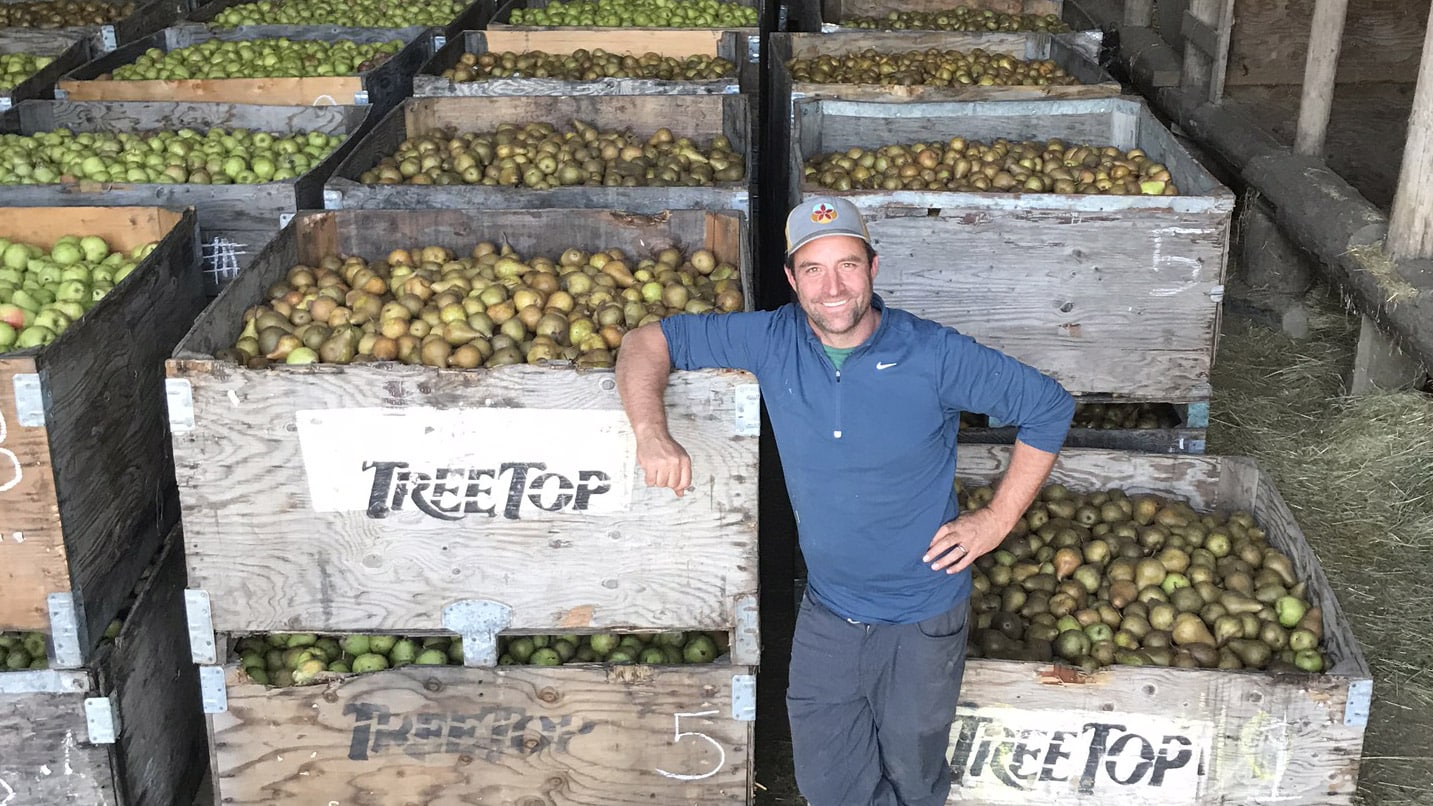
Cheers to the Climate
Perries are unique thanks to a naturally occurring ingredient in pears called sorbitol, a kind of sugar alcohol that has a third of the calories of other sugar alcohols while remaining quite sweet. Sorbitol doesn’t ferment, either, meaning a perry will retain its sweetness even after yeasts have consumed most of the pear’s other sugars. The result is a cider that’s lighter with a pleasant mouthfeel.
Blossom Barn uses only heritage pears, which are grown for ciders, unlike a dessert pear, and the whole process is climate friendly. Pear trees sequester carbon, and you need relatively little energy to process and ferment the fruit, explains Hall.
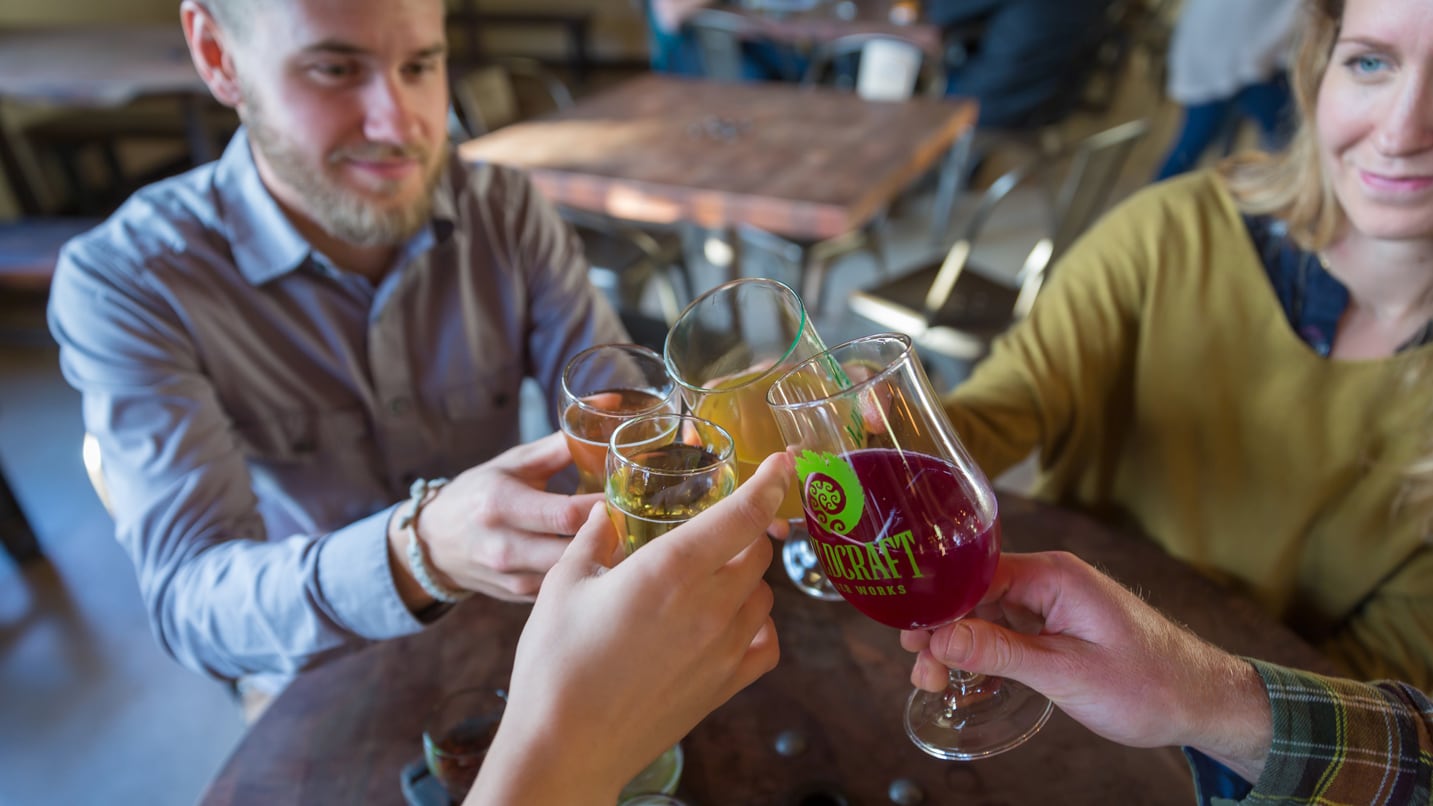
Where to Try Oregon Perries
You can find Blossom Barn every Saturday at the Grants Pass Growers’ Market and every Thursday at the Medford Farmers Market. Stores like Broken Top Bottle Shop in Bend and other retailers around the state carry the bottled perries, too.
If you’re interested in sampling other perries, you’re in luck. WildCraft Cider Works in Eugene has found a way to create a market for getting rid of invasive wild pears that grow from rootstock on old Willamette Valley homesteads — ferment them! They become the cidery’s Restoration Perry. (Try their elderberry-flavored perry, too.) In a similar vein, the foraging masters of Sheridan’s Art+Science search out abandoned trees and seedlings for their creations. Twilight Perry, for example, is made from pears gathered from a single seedling tree in the Perrydale area. Make an appointment and swing by the tasting room — open year-round — to enjoy a glass.
For a taste of Rogue Valley history, EdenVale Winery/Eden Valley Orchards — one of the founding farms of the pear industry — produces an organic perry from the original 1885 pear orchard on the property. Designated as a pear cider on the label but made with 100% pears, their offering is rich with the juices of Seckel, Comice, Anjou and Bosc pears.
Portland Cider Company’s Pearfect Perry has won numerous awards, including a “Double Gold” for best in class in 2018. It’s made with a blend of Bartlett, Bosc and Anjou pears from Hood River. E.Z. Orchards in Salem makes a Poire (French for “pear”) perry that’s slightly hazy with a fine carbonation.
